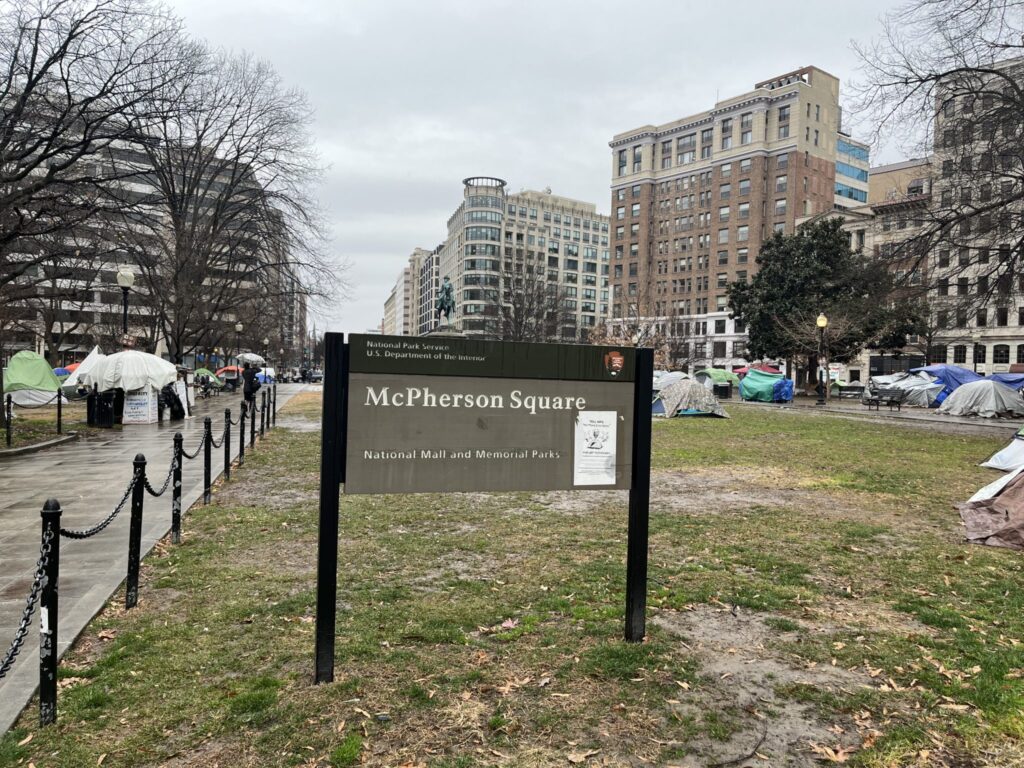Worldwide, 197,000 cases of coronavirus disease (COVID-19) had been confirmed worldwide by late March 17. The panic and health considerations around the outbreak have already begun to threaten the well-being and livelihood of street paper vendors, as well as people experiencing homelessness and poverty.
To combat the spread, and in response to unease over a sharp rise in deaths, the Italian government recently placed the entire country into lockdown, effectively quarantining all citizens. This worsened an already precarious situation for Milan-based street paper Scarp de’ tenis, which is distributed in several cities across the Italy.
Updating the International Network of Street Papers (INSP) about the situation, the magazine’s editor, Stefano Lampertico, who is working from home along with all other Scarp de’ tenis staff, explained that vendors are no longer able to sell the magazine. There have been no sales in March, and they have decided not to print their April issue.
“The impact of the virus is terrible,” he said. “This week, all services are closed. The number of sick people is increasing day by day. We are all living in the red zone. We can’t move. We can’t travel. We are all staying at home.”
Oggi anche Il Venerdì di Repubblica rilancia il nostro appello. In questo periodo in cui vendiamo solo in digitale, i…
Posted by Scarp de' tenis on Friday, March 6, 2020
In more hopeful news, Lampertico added that Scarp de’ tenis was able to raise 5,000 euros from online sales and has been distributing that money to vendors, though that has proven tricky in the middle of the shutdown. Staff – who are all healthy – continue work on other projects that will benefit those who work as street paper vendors in the meantime. Though the Italian government says the restrictions will only last until April 3, there is no real sense of how long the current situation will go on.
Meanwhile, in the far northern Italian region of South Tyrol, where the street publication zebra. is based, the shutdown is having a similar impact. Lisa Frei, the magazine’s editor, told INSP that streets are bare, as the normally bustling area is no longer teeming with tourists. Schools have been closed, nixing an opportunity to present zebra.‘s recently printed annual school edition to its target audience. Scarp de’ tenis and zebra. are in close communication and are able to share ideas about how to tackle the current crisis for their vendors (which number 140 and 60 respectively) who face weeks without the chance to sell the magazine on the streets of their cities.
“We are working on and want to start a solidarity campaign and call for donations towards vendors via local media,” said Frei. “We have 13,000 magazines that cannot now be sold, but we hope that the situation will calm down soon so we can sell them in April. So far, no one in our region has died due to the virus, and all vendors are doing well.” After Frei was interviewed, the first death from COVID-19 in South Tyrol was confirmed on March 12.
???????? #zebrableibtzuhause #zebrarestaacasa zebra. am Zehnten: Diesmal nicht. Wir sind zutiefst betroffen. Aber wir sind…
Posted by Straßenzeitung zebra. giornale di strada on Tuesday, March 10, 2020
As INSP previously reported via The Big Issue (UK), now that COVID-19 is being taken seriously in western countries, attention has turned to how people who sleep outside and other people experiencing homelessness may be disproportionately affected by the safeguards being put in place and the medical advice being dished out by health boards and governments. People living on the street, many of whom are street paper vendors, are not able to easily access bathrooms or hygiene products, and others have no choice but to live in homeless encampments and shelters, making self-isolation – the ideal method of preventing viral spread and contamination – extremely difficult. Carrying out the seemingly simple task of thorough hand-washing, as has been advised, is not a given for many living in this situation. In the UK, with some members of the general public panic-buying products like hand wash, poorer families are being pushed out, if not priced out.
In the U.S., street papers and their staff have begun to take measures to help the most vulnerable people in society, especially as the official response to the outbreak has been criticized.
The West Coast is where coronavirus is making its presence most felt. INSP spoke to several street paper staff members in that part of the U.S. for an update on how the pandemic is affecting them and those living on the streets. The homelessness crisis in the western U.S. is particularly fraught and visible.
“Here, we are as yet unaffected [by the virus], but homeless encampment sweeps are continuing unabated,” said Quiver Watts, editor of San Francisco street paper Street Sheet. “Our big service fair [an event, run by Project Homeless Connect, that centralizes services for unhoused people to easily access for a day] was cancelled to prevent any possible transmission, so folks are needing extra support.”
What if we can't stay home because we have no home? We need an immediate moratorium on sweeps AT LEAST until this state of emergency is over! #coronavirus#StateOfEmergency @sfpublicworks @SF_DPH @SFPD @LondonBreed
— Street Sheet (@StreetSheetSF) March 6, 2020
In a city where over 1,000 people are on a waiting list for shelter, and during a declared state of emergency, it is unacceptable, Watts says, for city officials to continue disrupting homeless people as they go to great lengths to adapt their behaviour to safeguard against infection. “Given the crisis we are facing, we need an immediate moratorium on sweeps so that people in encampments can stay in touch with health outreach workers, have consistent access to hygiene stations, not be forcibly deprived of medications and survival gear that protect people, and can get enough sleep to keep their immune systems up.”
Street Sheet put together a thorough resource titled “What if you can’t stay home?” outlining steps that homeless organisations can take to help those who need assistance and making demands of local government in San Francisco to do more.
Paula Lomazzi, director of Sacramento street paper Homeward Street Journal, explained to INSP how the transactional nature of their services and selling street papers is making everyone second guess their behavior.
“As the virus spreads more widely, breaking [through] the quarantine measures, I have concerns about it entering the homeless population and spreading throughout areas such as community meals and shelters,” she said. “Of concern to our office will be contact with money that is exchanged between staff and vendors [and vendors and customers]. You can’t fist bump money.”
Portland’s Street Roots has been engaging its vendors to inform and facilitate them in overcoming all obstacles that the virus may pose.
A poster created by Street Roots informs vendors how best to protect themselves from the coronavirus outbreak.
At their most recent weekly meeting – which occurs on Fridays, upon publication of the new edition of the street paper – staff discussed the best ways for vendors to stay as healthy as possible and how to interact with customers during the pandemic. Other vendors are being proactive.
“We talked about bringing hand sanitizer with them, and using it each time after handling money,” said Kaia Sand, executive director of Street Roots. “But also, using the hand sanitizer ostentatiously to visually assure customers.”
Sand said there had been no marked difference in sales, but they have been telling vendors that a change in circumstances in the area could mean a dip. They are also working with local partners to come up with other ways to ensure the health of vendors. “We are creating health packets for vendors to have and share with other people on the streets. We have been coordinating with a local group of volunteer physicians called ‘Portland Street Medicine,’ too. Our effort is to get people accurate information and other supplies (particularly hand sanitizers and soap). Because of the shortage of hand sanitizer, we have crowd sourced alcohol and aloe vera, and our volunteers are making a ‘home brew.’”
Donations of rubbing alcohol + aloe vera + travel containers are welcome so we can make hand sanitizer to pass along to unhoused folks while sanitizer runs low in the marketplace https://t.co/I2CGYd0ubC https://t.co/arObSRZKRz
— Street Roots (@StreetRoots) March 3, 2020
The worst-hit region in the U.S. is Washington state, which currently bears the highest number of confirmed cases and deaths. With streets and buildings half-empty, and public health officials recommending that the elderly and those with underlying medical conditions stay inside and people work from home if possible, it is expected it will have an effect on Seattle-based street paper Real Change.
“Different vendors are so far having different experiences,” said the street paper’s founding director Tim Harris. “Some are, fortunately, unaffected, while others, like those selling in a now empty downtown area, are having a tough time.”
Street papers are attempting to come up with creative ways to continue facilitating vendors to earn an income, including selling online versions of their usually printed magazine, and engaging in other social projects that they run parallel with the publication. The effect of the outbreak for street papers is two-fold: on an organisational and sales level and in terms of protecting vendors.
Read Street Sheet’s “What if you can’t stay home?” guide here.






